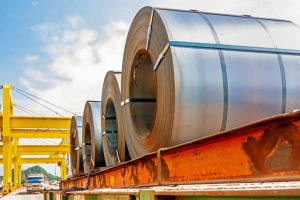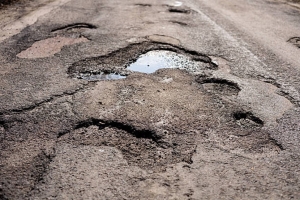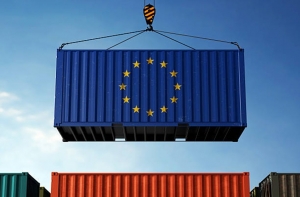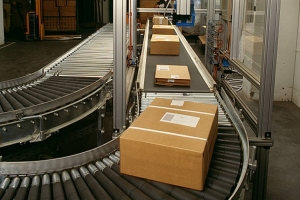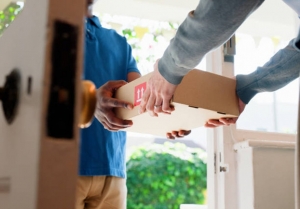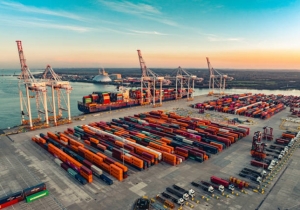Electric HGV trial slashes carbon on steel deliveries
A 42-tonne fully electric articulated lorry has completed a ten-day trial moving steel from British Steel’s Teesside site to customers nationwide. Operated by long-standing haulage partner AV Dawson Transport and arranged through e-fleet specialist VEV, the vehicle clocked more than 1,800 miles across 42 separate trips, cutting 2.3 tonnes of CO₂ compared with a conventional diesel unit.
A senior representative from the steelmaker said the business chooses logistics providers with strong sustainability plans and was “pleased to see practical proof that zero-emission heavy haulage can meet the demands of our supply chain”. The exercise covered a mix of urban and motorway routes to test range, charging arrangements and real-world energy use under full payload.
Following the successful pilot, the logistics firm is assessing further electrification alongside alternative fuels as part of a wider strategy to decarbonise its fleet. It believes transitioning its HGVs could eventually eliminate millions of tonnes of greenhouse gases generated each year by industrial freight movements in the UK, while helping drivers and local communities benefit from quieter, cleaner roads.
Lower-carbon transport also delivers gains for customers. Because tailpipe emissions from contractors count towards a manufacturer’s Scope 3 footprint, every electric mile removes indirect greenhouse gases from British Steel’s balance sheet, supporting the company’s commitment to reach net-zero across its wider supply chain.
Drivers Favour Weight-Based Levies to Mend Potholes
More than half of motorists think the heaviest vehicles should pay extra towards fixing Britain’s battered roads, a survey by Kwik Fit reveals. Fifty-six per cent believe haulage firms ought to face a dedicated ‘pothole levy’, while only 17 per cent object. A similar sentiment applies to delivery vans, with 44 per cent backing a weight-related charge and 23 per cent opposed.
Support extends to private motoring: 48 per cent want higher Vehicle Excise Duty for heavy cars, against 21 per cent who object. Kwik Fit’s 2025 Pothole Impact Tracker puts last year’s repair bills for pothole damage at £1.7 billion. The Asphalt Industry Alliance says councils need £16.8 billion to clear the maintenance backlog, up 42 per cent since 2016, while drivers’ costs have surged 150 per cent.
Operations director Dan Joyce says the funding conundrum remains, with only 26 per cent ready to pay higher tax for local repairs. “Drivers feel they already give enough and expect heavier vehicles to shoulder the extra,” he observed, warning that any levy on lorries or vans would likely be passed on to shoppers.
Age matters: 40 per cent of Gen Z and 38 per cent of Millennials would accept a surcharge, versus 18 per cent of Gen X and 15 per cent of Boomers. Despite new government funding pledges, 64 per cent of motorists still doubt their local roads will improve any time soon, even with promises stretching into the next Parliament.
UK Trade Hit Harder Than EU Since Brexit, Says Logistics Chief
The UK’s trading ties with the EU have taken a deeper hit post-Brexit than those of its European counterparts, according to Logistics UK. New analysis shows UK exports to the EU have dropped by 23% since 2017, while imports have only fallen 5%. Logistics UK President Phil Roe presented the figures at Multimodal 2025, calling for urgent progress on border reforms agreed during the recent UK-EU summit.
Roe pointed to several global pressures - such as the pandemic and conflicts in Ukraine and the Red Sea - but stressed that Brexit has uniquely harmed UK exporters. Containerised shipments have followed a similar pattern, with EU-bound exports down 21% and imports from the EU again more stable. Roe highlighted that the UK still heavily depends on EU trade, but exporters face mounting obstacles.
He blamed the disparity on post-Brexit controls, particularly Sanitary and Phytosanitary (SPS) checks, which have introduced new costs, delays and administrative burdens for UK businesses - especially those trading in perishable goods. Products like meat, fish, dairy and fresh produce have seen double-digit export drops since 2017.
To recover lost ground, Roe urged swift implementation of a UK-EU SPS agreement, arguing that dynamic alignment could eliminate many barriers and reignite trade in agri-food products, provided businesses are involved in shaping the new rules.
DPD Unveils £330 m Push for Seven High-Tech Depots
Parcel carrier DPD has earmarked £330 million for a fresh wave of expansion, commissioning seven 60,000 sq ft distribution hubs that will nudge the company towards its fiftieth purpose-built depot and bolster a nationwide web of more than eighty regional sorting centres. The multi-year programme reflects soaring e-commerce volumes and heightened customer demand for rapid, predictable deliveries.
Each site will be fitted with automated sorters capable of handling up to 80,000 parcels a day and room for upwards of 100 additional delivery routes. Ground will be broken first in Crawley and Darlington, followed by Cambridge, Bradford, Guildford, Milton Keynes and Sittingbourne, with all seven facilities scheduled to open their doors by early 2027. The depots will operate round the clock and include on-site charging for electric vans.
“This round of investment accelerates the modernisation of our network,” said Tim Jones, director of marketing, communications and sustainability at DPDgroup UK. “As 38 per cent of our van fleet is already electric, these depots will be served by ever-cleaner vehicles, shrinking our carbon footprint and edging us closer to net-zero.”
The logistics specialist hopes the upgrade will enhance service resilience while underpinning its sustainability goals. Sector watchers will have a chance to hear more at Logistics Manager’s Sustainable Supply Chain Conference in London next June, where representatives from Defra, the NHS and major brands will discuss how greener operations can boost the bottom line.
Evri to Recruit 5,000 Couriers Following DHL Merger Announcement
Parcel delivery firm Evri is launching a major hiring campaign to bring on 5,000 new couriers across the UK, shortly after revealing its merger plans with DHL’s UK e-commerce division. The expansion will see Evri’s self-employed courier network grow to 33,000, with roles available in areas such as Dover, Bury, Hastings, Scarborough, and Plymouth.
Of the new roles, 1,000 will be permanent, while the remaining positions will offer flexible working options tailored to peak delivery periods. Those who commit to working five days or more per week will be eligible for Evri’s new Plus scheme, which includes paid holiday and pension contributions.
The recruitment drive follows a year of transformation for Evri, formerly Hermes, which was purchased by private equity firm Apollo for £2.7 billion. With more than 800 million parcels delivered annually, the company operates a wide UK network of couriers, employees, depots, and hubs.
The upcoming merger with DHL eCommerce UK is set to create the nation’s largest parcel delivery business, expanding operations to include business letter delivery and boosting Evri’s global logistics reach. CEO Martijn de Lange emphasised the importance of growing the courier network to enhance service quality, reliability, and customer satisfaction.
Electric Freight Truck Makes Historic Cross-Channel Journey
In a major step towards greener logistics, Kuehne+Nagel has completed the first cross-Channel freight journey using a heavy-duty electric truck. Teaming up with Renault Trucks and P&O Ferries, the fully electric Renault Trucks E-Tech T carried freight from the UK to France via ferry – a first for zero-emission transport of this kind.
The truck set off from Kuehne+Nagel’s East Midlands Gateway site in Derbyshire and travelled to Amiens, France, with a ferry crossing from Dover to Calais. Operated aboard the P&O Liberté – a hybrid ferry with 40% lower emissions than standard vessels – the journey marked a significant advancement in low-carbon freight solutions.
Following unloading, reloading and recharging in France, the electric vehicle returned to the UK, completing a round trip of 1,100 km. The project not only demonstrated the operational reliability of electric trucks on international routes but also confirmed ferry transport as a safe and compliant option for heavy-duty EVs crossing the Channel.
This pioneering journey aims to pave the way for wider adoption of electric haulage and to position key trade routes like Dover-Calais as future-ready green freight corridors. The collaboration highlights the growing potential for decarbonised transport between the UK and mainland Europe.
Logistics Sector Urged to Be Recognised as Key Pillar of UK Economy
The UK’s logistics industry now contributes £170 billion annually to the economy and employs over 8% of the national workforce, according to new figures published in The Logistics Report 2025. Launched at Logistics UK’s first-ever annual conference in London, the report calls on the government to acknowledge the strategic importance of logistics in driving national growth.
Phil Roe, President of Logistics UK, highlighted that logistics is far more than a background function - it’s a core component of economic performance. He urged policymakers to position logistics as a priority within the UK's Industrial Strategy, noting its foundational role in enabling trade, supporting businesses, and sustaining supply chains.
The report combines official statistics with insights from industry professionals and survey responses from over 500 logistics firms. It reveals a dip in overall business confidence, attributed to ongoing economic pressures. However, firms continue to invest cautiously, particularly in new vehicle technology and sustainable fleet management, demonstrating their commitment to decarbonisation.
Despite efforts to modernise, the sector faces ongoing recruitment challenges. Larger firms are turning to automation and AI to fill gaps, but concerns remain about the need for a steady pipeline of skilled workers. As global trade agreements advance, experts stress that a resilient logistics network is vital to realising the full benefits of future trade deals.
Spending Review Confirms £15bn for Regional Transport as Labour Backs Growth Outside London
Following the government’s latest spending review, Chancellor Rachel Reeves has confirmed a £15.6bn investment package aimed at upgrading transport infrastructure outside London. The funding forms part of a broader £113bn capital programme designed to drive long-term economic growth through improvements in transport, housing, and energy.
The review outlined major allocations for regional transport, including £2.5bn for Greater Manchester, £2.4bn for the West Midlands, and £2.1bn to kick-start West Yorkshire’s mass transit system. South Yorkshire secured £1.5bn to modernise its tram network, and the East Midlands was awarded £2bn to begin designing a new transport link between Derby and Nottingham. Many of these projects had been previously announced but never funded under the Conservatives.
Reeves positioned the spending as a deliberate move away from centralisation, confirming a change to Treasury rules to prioritise projects that enhance productivity in regions often overlooked. She stressed that the review marks a “step change” in how investment is assessed and allocated, giving every region a “fair hearing”.
Despite concerns around tightening departmental budgets, Labour insists this capital package reflects its commitment to rebuilding Britain with fairness at its core - placing infrastructure and regional opportunity at the heart of its economic strategy.


